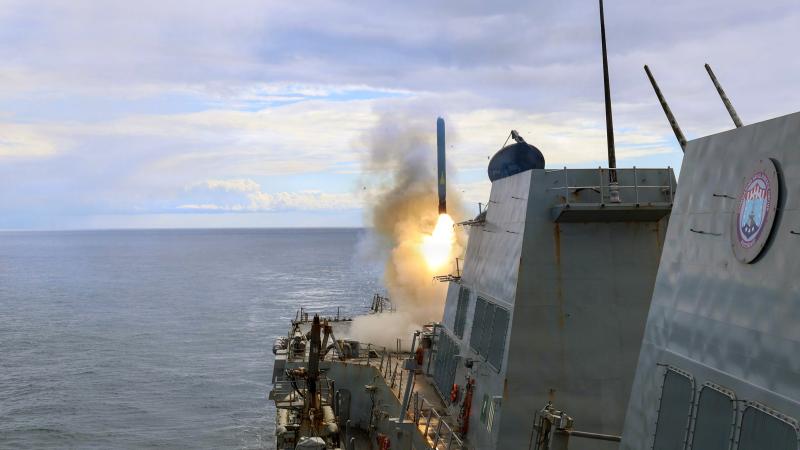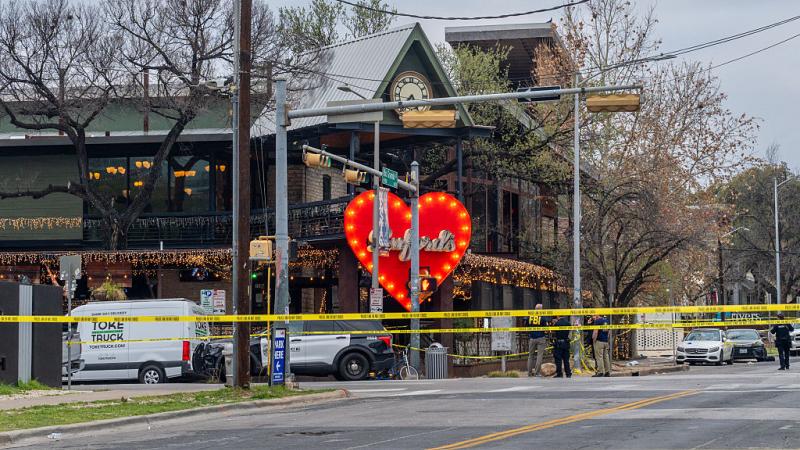Schiff releases transcripts undercutting Dem claims of Russia collusion proof
FBI officials admit they knew Papadopoulos had little contact with Russians but opened probe anyways. DNC-connected lawyer reveals CIA contact.
The House Intelligence Committee on Thursday released thousands of pages of declassified interview transcripts from the Russia investigation that show that more than a year into the probe senior FBI and intelligence officials could offer no specific proof of collusion between Donald Trump's campaign and Moscow and instead offered rambling explanations of why the probe had persisted.
The testimony of fired FBI Deputy Director Andrew McCabe typified the testimony that was given back in 2017 to the committee, then under the leadership of Rep. Devin Nunes.
McCabe admitted at one point that while the FBI opened up the entire Crossfire Hurricane investigation based on a tip from Australia that George Papadopoulos may have been told Russia possessed emails of Hillary Clinton, the bureau suspected the former Trump campaign adviser had little or no contact with Moscow.
So agents pivoted instead to another adviser, Carter Page, who had been the focus of Christopher Steele's now-discredited dossier, he explained.
"Papadopoulos' comment didn't particularly indicate that he was the person that had had — that was interacting with the Russians," McCabe answered when asked by lawmakers why a Foreign Intelligence Surveillance Act warrant request in October 2016 focused only on Page and not the man the FBI originally predicated the Trump investigation upon.
It was one of the few extraordinary admissions from McCabe: The FBI opened up an entire counterintelligence probe of the Trump campaign on a figure agents did not believe was having contact with Moscow.
The transcripts, otherwise, contain mostly old news, long since surpassed by revelations in Robert Mueller's final report that concluded there was no collusion between any Americans and Russia to hijack the 2016 election and Inspector General Michael Horowitz's detailed report of abuses of the FISA process by the FBI.
But perhaps the biggest piece of previously unreported news came from Michael Sussmann, a lawyer for the Perkins Coie law firm that represented the Democratic National Committee and Hillary Clinton's campaign in 2016. It was that law firm that contracted with Fusion GPS to hire Steele to develop the anti-Trump dossier that was shared with the FBI.
Sussmann acknowledged under questioning by Republican staff that in February 2017 he shared dirt he had gotten on the Trump organization's possible ties to Russia with the CIA. The agency's name was redacted from the transcript but confirmed to Just the News by multiple U.S. officials.
What was your contact [redacted] about?" a lawyer asked Sussmann.
"So the contact was about reporting to them information that was reported to me about possible contacts, covert or at least nonpublic, between Russian entities and various entities in the United States associated with the — or potentially associated with the Trump Organization," Sussmann answered.
The lawyer followed up: "And when did that contact occur, month and year?"
"February 2017," Sussmann answered.
"Where did you get that information from to relay to [redacted]?" he was asked.
"From a client of mine," he answered, declining to be more specific.
In releasing the transcripts Thursday, the current Democratic House Intelligence Committee chairman Adam Schiff claimed they provided proof of nefarious connections between Russians and Trump associates. "The transcripts released today richly detail evidence of the Trump campaign’s efforts to invite, make use of, and cover up Russia’s help in the 2016 presidential election," he alleged.
In fact, witnesses were repeatedly pressed to offer specific evidence of a conspiracy between Trump and Russia and could offer none, saying it was either too preliminary or they did not have any.
“I never saw any direct empirical evidence that the Trump campaign or someone in it was plotting/conspiring with the Russians to meddle with the election,” former Director of National Intelligence James Clapper told lawmakers. “That’s not to say that there weren’t concerns about the evidence we were seeing, anecdotal evidence.
“But I do not recall any instance where I had direct evidence,” he added
Former Obama Attorney General Loretta Lynch testified that by the time she left office on Jan. 20, 2017 with the case more than six months old, she was unaware of any direct evidence of collusion.
"I don't recall anything being briefed up to me, and it's just my recollection at this point is not," she said. She added that what officials had was mostly fears Russia might be working with Trump.
"Certainly the information that was given in [redacted] was concerning to me and indicated that there was a goal to have coordinated activity," she said.
Former Acting Attorney General Sally Yates, who worked for both Obama and Trump, also acknowledged there had been no determination of any conspiracy to collude before she was fired. Her winding answer was typical of many of the witnesses.
"I think you need to learn — if you want to get to the bottom line answer of was there collusion, conspiracy or coordination — if I got the three Cs right — then you also need to learn about who had contact, because you can't get to that collusion — the other — the three Cs there, until you figure out who's having contact with who," she said.
Pressed to be more specific, Yates conceded there was no finding. "I don't believe anybody had reached a conclusion yet as to whether there was a nefarious alliance ... with the Russians. We were at the fact-gathering stage here, not the conclusion stage."
Mary McCord, the former assistant attorney general for national security, also testified that by the time she left the department a year into the probe there was no evidence that anyone from the Trump campaign had conspired with Russia to hack DNC or Clinton campaign officials.
"I can't recall if there was information, any information or evidence at the time I left about conspiring to take part in the actual intrusion," she said.
On a related matter, McCabe also gave some of the first testimony that alerted Congress to the existence of an FBI spreadsheet tracking all the claims in the Steele dossier.
While McCabe's testimony defended using Steele's dossier to support the FISA warrant, a subsequent Justice Department inspector general investigation found the spreadsheet showed Steele's dossier was filled with uncorroborated and false information and some potential Russian disinformation that did not support the FISA warrant and misled the FISA court.
The deputy director acknowledged Steele first gave part of his dossier to the FBI in London in July 2016, but the receiving agent could not find anyone in the FBI interested in pursuing it until the document made its way to FBI headquarters in September 2016, or two months before election day. McCabe also acknowledged the FBI likely knew the dosser was written to help Hillary Clinton's campaign and the Democratic National Committee.
"I think it was certainly relevant to us that he had been contracted by a competing candidate initially, and that ultimately, that contract had been picked up by a competing candidate from the other party," McCabe said. That was definitely relevant to us; one of the factors that we considered in assessing whether or not we believed his reporting.
But he could not answer why the FISA court was not explicitly told of Steele's connection to Clinton and the DNC.
















